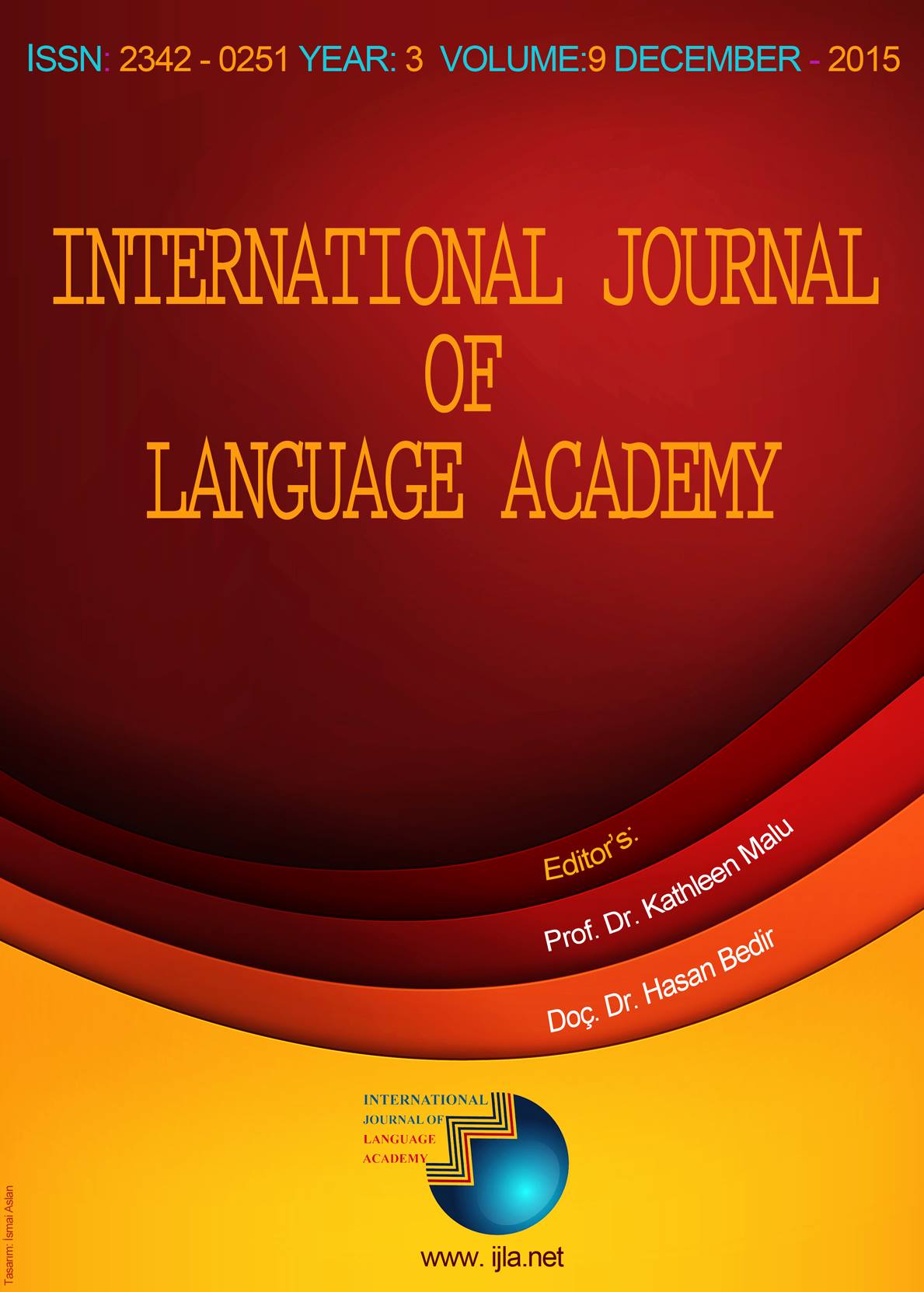Author :
Abstract
Türkiye’de İngilizce dil eğitimindeki Avrupa politikasına dayalı ulusal uygulamalar temel olarak, hayat boyu öğrenme perspektifinden öz değerlendirme, kültürel çeşitlilik ve öğrenci özerkliği gibi üç eğitimsel prensibi gerektiren ve eylem odaklı bir yaklaşıma dayanan ADÖÇEP odaklıdır. Böyle bir sistemde sınıftaki öğrencilerin okul ortamları içindeki ve dışındaki kişisel iletişim ihtiyaçları için bağımsız dil kullanıcıları olarak görülmesi beklenmektedir. Bu yüzden İngilizce dili çalışmak için “bir ders” olarak değil, özellikle diğer kültürlerin temsilcileri ile iletişimsel amaçlar için konuşma ve kullanmaya yönelik “bir dil” olarak kabul edilmektedir. Öğretmenlere öğrencilerinin en güvenilir dil partnerleri olmaları önerilmekte, dersleri tasarlayanlara ADÖÇEP’in betimleyici ve kuralcı uygulamalarını göz önünde bulundurmaları tavsiye edilmekte, sınavları hazırlayanlara sınav sorularını geliştirirken ADÖÇEP’in tanımlayıcılarını hatırlamaları önerilmekte ve dil öğrenici/kullanıcılarına öz yönlendirmeye dayalı bir öğrenme sürecinde öz değerlendirme uygulamaları aracılığıyla (bir ADP modeli tutarak) üst bilişsel öğrenme stratejilerini geliştirmeleri tavsiye edilmektedir.
Keywords
Abstract
The European policy oriented national implementations in English language education in Turkey are basically CEFR focused, which requires three educational principles such as self-assessment, cultural diversity and learner autonomy in a lifelong learning perspective, and based on an action oriented approach. In such a system students in the classrooms are expected to be considered as independent users of the language for their personal communication needs both inside and outside of the school settings. Therefore English language is not considered as “a lesson” to study but “a language” to speak and use for communication purposes especially with the representatives of other cultures. Teachers are suggested to be the most reliable language partners of their students, course designers are suggested to consider descriptive and prescriptive implications of the CEFR, testers are suggested to remember the CEFR descriptors when developing test items, and the learner/users of languages are suggested to develop their metacognitive learning strategies through self-assessment practices (keeping an ELP model) in a self-directed learning process.
Keywords
- of the classroom environment (Council of Europe 2001b, Mirici2000, 2008). It comprises
- across Europe (Mirici 2014).
- (http://www.ealta.eu.org) The CEFR and the ELP Oriented Practices in Turkey The Ministers of the member states to the Council of Europe held their 20th meeting in Krakow, Poland between the dates of 15-17 October 2000. In their meeting they agreed to adapt and disseminate the CEFR and ELP oriented foreign language implementations in their education system. As a result Turkish Ministry of Education Board of Education designed the English language curricula in accordance with the CEFR principles and guidelines in 2002, 2011 and 2013. The last curriculum introduced through the ministry website has the following introduction section (www.meb.gov.tr ).
- (Selvi 2011). 4. EFL teachers feel that they need to develop their language competences in English
- planning their classes and administering assessment tools (Cesur 2012). 5. EFL teachers reflect their needs for regular in-service teacher training programs
- (Aydoğdu 2007, Arıkan 2010). 6. Some other information is given in the following table: Table 2. The CEFR and the ELP Practices in Turkey Number Institution/ Organization CEFR & ELP Based Implementation 1 Ministry of Education Two ELP models for 10-14 and 15-18
- 1 Ministry of Education (15-18) 47.2003
- 2 Ankara University TOMER (Adult) 56.2004
- 3 Bilfen Schools (10-14) 79.2006
- 4 Ministry of Education (10-14) 80.2006
- 5 Bilfen Schools (5-9) 85.2007
- 6 ITU (7-9) 114.2010
- 7 ITU (10-14) 115.2010
- 8 Maya College (7-9) 2013.R008
- Arıkan, A. (2010). Effective English language teacher from the perspectives of prospective
- 223. Aydoğdu, E. (2007). EFL teachers’ perceptions of foreign language teaching competences.
- Unpublished Master Thesis, Trakya University, Edirne. Cesur, K. (2012). Examining competencies of prospective English teachers through their
- Gazi University: Ankara. Council of Europe (2001a). Common European Framework of Reference for Languages:
- Learning, teaching, assessment, Cambridge: CUP. Council of Europe (2001b). European Language Portfolio (ELP), available online:
- www.coe.int/portfolio Little, D and Perclova, R (2001). European Language Portfolio: A guide for teachers and
- teacher trainers, Strasbourg: Council of Europe. Mirici, İ. H. (2000). “European Language Portfolio: A tool for a common language
- education policy in Europe”. Journal of Interdisciplinary Education, 6 (1): 161-166. Mirici, İ. H. (2008). “Development and Validation Process of a European Language Portfolio
- Model for Young Learners”. TOJDE. April 2008, Volume: 9 Number: 2, Eskişehir:
- Anadolu University. Mirici, İ. H. (2014). The Common European Framework of Reference for Languages
- Principles in English as a Foreign Language (EFL) Education. Ankara: Eğiten. Newby, D. (2012). Insights into the European Portfolio for Student Teachers of Languages
- (EPOSTL) Cambridge: Cambridge Scholars Publishing. Selvi, K. (2011). Teachers’ lifelong learning competencies.UluslararasıEğitimProgramlarıve
- vanEk, J A and Trim, J L M (1990b). Waystage 1990, Cambridge: CUP.
- vanEk, J A and Trim, J L M (2001). Vantage, Cambridge: CUP.
